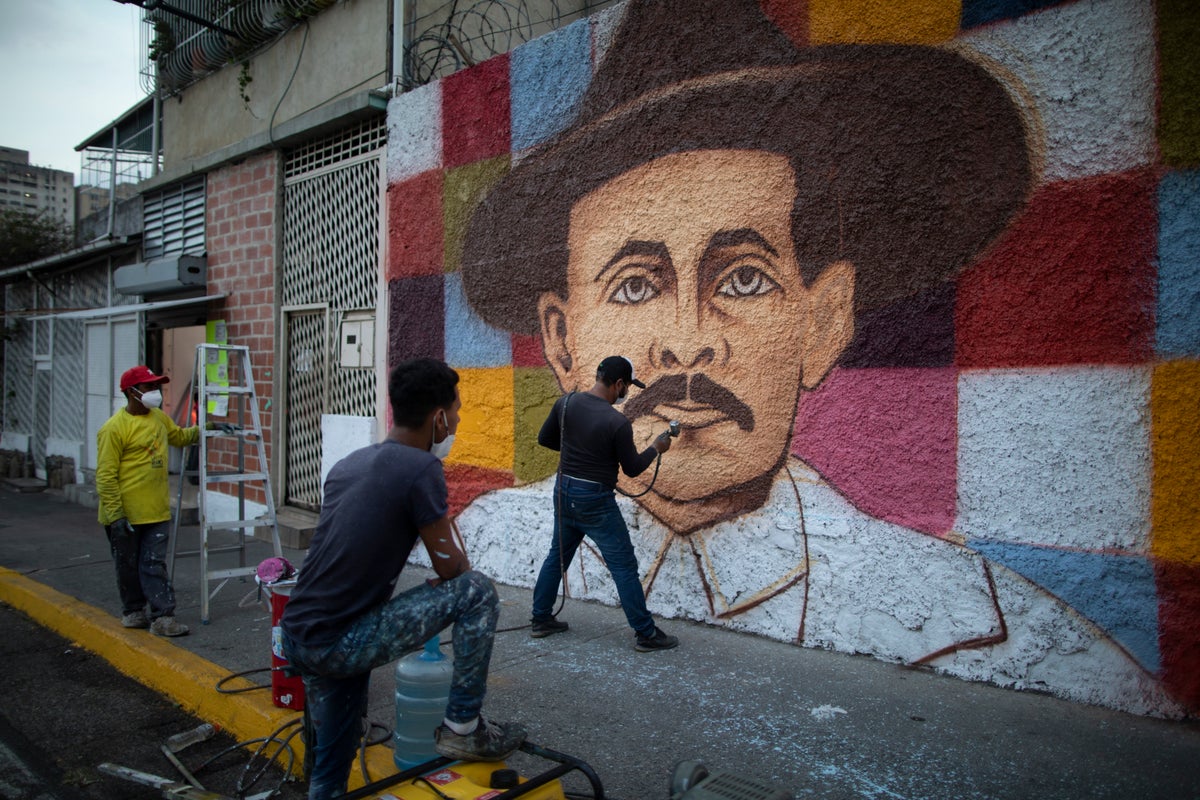
Venezuela is poised for a moment of national celebration this Sunday as Pope Leo XIV canonises the nation’s beloved “doctor of the poor”, José Gregorio Hernández.
The historic ceremony will bestow upon the Caribbean nation its first saint, offering a beacon of hope amid years of economic crisis and new tensions with the United States.
Dr Hernández, revered by millions for his dedication to impoverished communities, will be elevated to sainthood alongside Mother Carmen Rendiles Martínez, founder of a Venezuelan religious order.
Thousands of Venezuelans are expected to attend the Mass in St Peter’s Square, with many more gathering in Caracas to watch a livestream of the Vatican service.
The ceremony will see a total of seven individuals canonised, including Papua New Guinea’s first saint, Peter To Rot, a layman killed in 1945 for advocating monogamous marriage.
Pope Francis approved Dr Hernández’s canonisation from his hospital room on 24 February, bypassing the Vatican’s typical miracle confirmation process. The decision was based on the “widespread veneration of the ‘doctor-saint’ among the faithful,” the Vatican said.
Dr Hernández is beloved among Venezuelans, with his face plastered on street art around Caracas, in portraits in hospitals and in photos gracing individual home altars.
As a doctor in Caracas during the late 1800s and early 1900s, he refused to take money from poor people for his services and often gave them money for medicine, earning the nickname “doctor of the poor”. He was killed in 1919 while crossing a street shortly after picking up some medicine at a pharmacy to bring to a poor elderly woman.
He became a religious icon after his death, and when Pope John Paul II visited Venezuela in February 1996, he received a petition signed by five million people — almost one in four Venezuelans — asking that he declare Dr Hernández a saint.
“For them, this is indeed a national event of the highest order,” said Silvia Correale, who spearheaded his sainthood case. “Certainly, the canonisation of José Gregorio is desired by all the Venezuelan people, and has been waited for by all the people.”
Arquímides Blanco, 60, said he wasn’t a particular fan of Dr Hernández but recognized the significance of his canonization for Venezuela now. Mr Blanco was a member of a cultural collective commissioned to paint the streets surrounding the church of the emblematic parish of La Pastora, as part of the preparations for the canonisation.
“I may not be a big fan of José Gregorio as such, but I understand that he is Venezuelan and that his canonisation in the context of the whole geopolitical situation is important,” he said.
The canonisation is a long-awaited celebration and a boost for Venezuela, just weeks after Venezuelan opposition leader María Corina Machado won the Nobel Peace Prize. It comes as tensions mount with the United States over Washington’s use of military force against suspected drug cartels.
Just this past week, US President Donald Trump confirmed that he authorised the CIA to conduct covert operations inside Venezuela and said he was weighing the execution of land operations in the South American country.
Venezuela’s economy has been in crisis for the past decade, spurring the emigration of millions of Venezuelans, first to other South American nations and then, in more recent years, to the United States.
The country’s economic disaster has been compounded by US sanctions. The government of President Nicólas Maduro – sworn in in 2024 despite credible evidence he lost reelection — has been forced to cut subsidies, making many daily necessities unaffordable to the 80 pr cent of residents estimated to live in poverty.
Also being canonised on Sunday are Archbishop Ignazio Choukrallah Maloyan, an Armenian Catholic who was killed for refusing to renounce his faith during what the Vatican has said was the Ottoman-era genocide of Armenians; Sister Vincenza Maria Poloni, a 19th century founder of a religious order; Maria Troncatti, an Italian missionary in Ecuador, and Bartolo Longo, who like Hernandez will be canonised based on widespread veneration among the faithful, not a purported miraculous healing.
